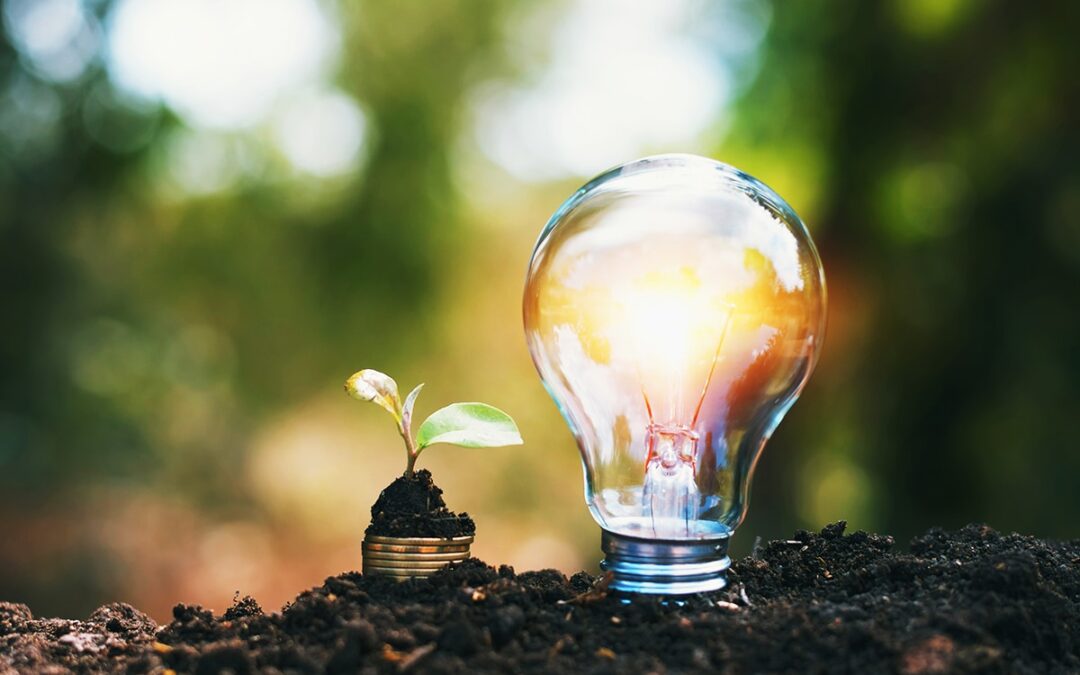The Importance of Balancing Ecology and Economy
The modern industrial era has brought about remarkable changes to human life, shaping the way we live, work and interact with the environment around us. However, these changes have come at a cost, causing environmental degradation, loss of biodiversity and depletion of natural resources. As we continue to move forward at an ever-increasing pace, we must pause and reflect on how we can balance our economic growth with ecological sustainability to ensure a bright and secure future for generations to come.
The Need for Sustainability
Sustainability is a term that has gained a significant amount of attention in recent years, and for good reason. Sustainability is the practice of preserving and conserving natural resources while maintaining economic growth and development. It is about minimizing harm to the environment and ensuring that the resources that we consume are replenished in a responsible manner. Simply put, sustainability is about balancing ecology and economy to ensure that the planet stays healthy and prosperous.
The Importance of Biodiversity
Biodiversity is a crucial component of the planet’s ecosystem. It refers to the variety of life forms that inhabit the earth, including plants, animals, and microorganisms. Biodiversity is essential to the functioning of ecosystems, as it plays a crucial role in the provision of ecosystem services such as clean air, water, and food, as well as the regulation of climate and nutrient cycling.
However, human activities, particularly those of the industrial era, have led to a significant loss of biodiversity and destruction of natural habitats. This has led to a decline in ecosystem services, which in turn has had a significant impact on human well-being. Therefore, it is essential that we take measures to protect and conserve biodiversity to ensure a sustainable future for ourselves and the planet.
The Need for Sustainable Economic Growth
Economic growth is vital for human progress and development. However, the impact of economic growth on the environment cannot be ignored. The ever-increasing demands for resources, land, and energy have led to environmental degradation and climate change. Therefore, it is important to understand that sustainable economic growth is the key to balancing ecology and economy.
Sustainable economic growth is about finding ways to grow economically while minimizing the negative environmental impact. This requires the adoption of sustainable practices that promote the efficient use of resources, the reduction of waste, and the utilization of renewable energy sources. This approach not only reduces environmental harm but also generates economic opportunities and promotes social development.
The Role of Businesses in Achieving Sustainability
Businesses play a critical role in achieving sustainability. As agents of economic growth, businesses can drive change by adopting sustainable practices that not only reduce environmental harm but also generate profit. This approach is increasingly being adopted by businesses across the globe, as they realize the benefits of sustainability, including increased competitiveness, brand value, and customer loyalty.
Businesses can achieve sustainability by adopting practices such as reducing waste, using renewable energy sources, and implementing environmentally friendly measures. They can also engage in corporate social responsibility (CSR) activities that benefit the environment and society, such as recycling initiatives and community outreach programs.
The Role of Individuals in Achieving Sustainability
Individuals also play a vital role in achieving sustainability. Small actions taken by individuals, such as choosing to recycle, reducing energy consumption, and using public transport, can have a significant impact on the environment.
Individuals can achieve sustainability by adopting simple practices such as reducing waste by choosing reusable materials, conserving energy, using eco-friendly products, and choosing sustainable food sources. These simple lifestyle changes can have a profound impact on the environment.
Conclusion
The importance of balancing ecology and economy cannot be overstated. The future of our planet and our well-being depend on our ability to adopt sustainable practices that promote economic growth while minimizing environmental harm.
Businesses, governments and individuals must work together to achieve sustainability by adopting practices that reduce waste, use renewable energy sources, and conserve natural resources. By working together to achieve sustainability, we can ensure a bright and secure future for generations to come.
- Act Now or Lose Forever: The Devastating Impact of Species Extinction - 21 de junio de 2023
- Act now or watch them disappear: The urgent need for endangered species conservation - 21 de junio de 2023
- A Decadent Symphony for Your Taste Buds: Gastronomic Revolution Unleashed! - 18 de junio de 2023
